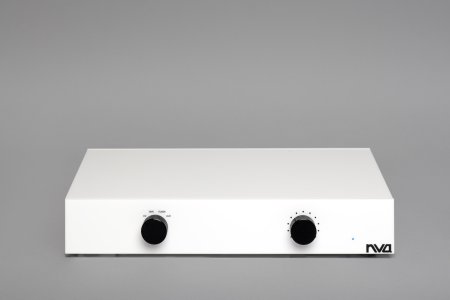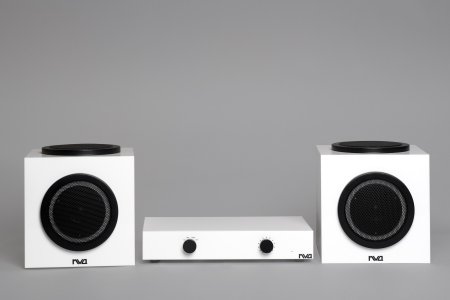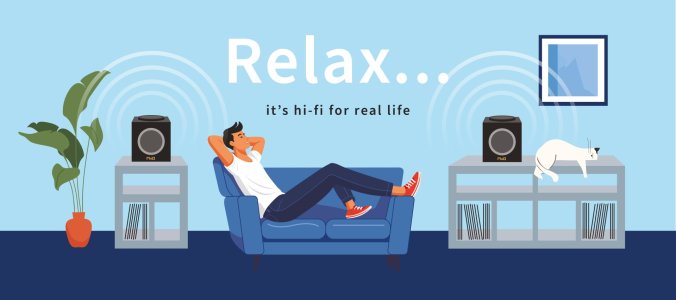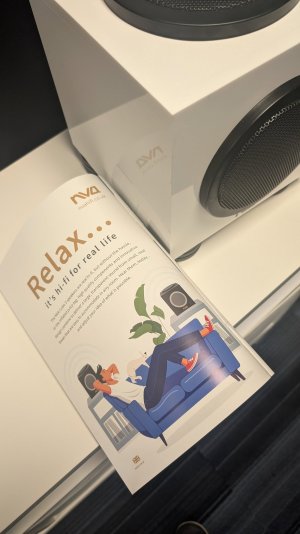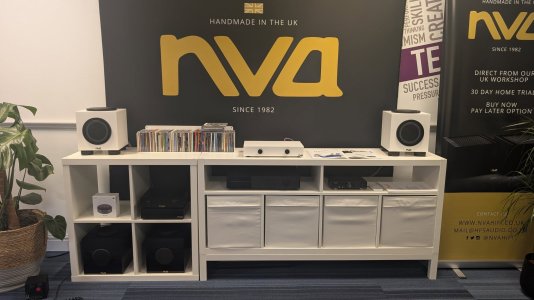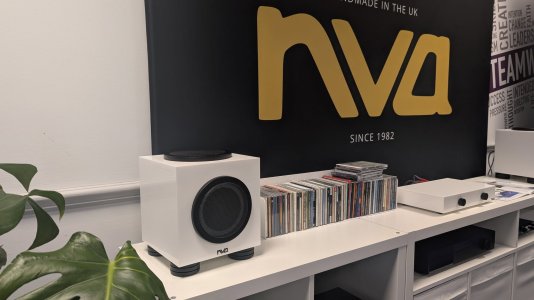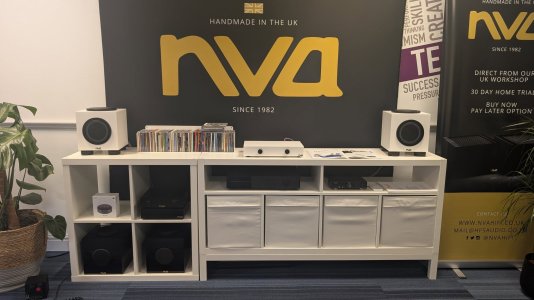View attachment 349
Not our usual show report!!
Snobbery & Denial- the slow death of the traditional UK hi-fi industry.
A fella walked into our room at the North West Audio Show, bemoaned the lack of a turntable and declared that “vinyl is the future of music”.
Stuart Smith from the online magazine Hi-Fi Pig, who happened to be in our room at the time, instantly (and brilliantly) responded “No, its not! The phone is the future of music”. For me, this brief exchange might be a most succinct summing up of the current state of the traditional UK hi-fi scene, and how it needs to change.
The 'North West' is a brilliantly organised show, and we had a fabulous time, but it is still overwhelmingly an OAP day out. If we don't get more young people interested in the hobby then all that will be left in ten years time are a few 70-year old audiophiles converting their pension lump sums into £70k speakers and DACs, and the remaining manufacturers scrambling over each other to get the 5 mega-margin sales a year that they need in order to delay the inevitable.
How did we get here? Lets start at the beginning of the end. By the late 1980s, Sony had sold over 100 million Walkman cassette players. The cassette is (virtually) extinct today, relegated to the most niche rungs on the retro ladder, but the Walkman did change the world's listening habits by making music both portable and personal. Just as important, it was also affordable and easy to use. You didn't need a 'system' (or Amstrad tower) and you didn't even need your own room. The Walkman didn't kill off separates, but it did alert 'the people' to the sort of convenience and accessibility that would shape the future.
Separates systems still reigned supreme in most living rooms during the 1980s and 1990s, of course. You could pick up a Dual turntable or Philips CD player, NAD amp and Mission speakers for around a week's wages, and cables were 50 pence a metre! Students could cobble something together from secondhand shops and hand-me-down gear, and the more serious of young enthusiasts could easily get finance and loans thanks to Maggie T's deregulation of the banks. By the time I was 20, I owned an LP12, and by the time I was 22, I owned my own property. I dreamt of bigger amps, bigger speakers and bigger cables, and I had the financial means to acquire them and my own space to put them in. BUT...
...fast forward to the 2000s and there were new inventions that would quickly go on to drastically and permanently change mainstream music consumption habits (and the rest of our habits): iPods, iPhones and iTunes, Android and Spotify, and Bluetooth. At the same time, house prices had rocketed and income was about to stagnate due to the financial crash of 2008 (arguably, the inevitable consequence of the deregulation that Thatcher had jump started in the 1980s). Young people suddenly had unprecedented 'free' access to millions of songs, in their pockets, but nowhere to house a 'large' hi-fi system. The young people who would once have pressed their noses against the windows of Comet and Laskys now bought headphones, earbuds and Bluetooth speakers at attractively low prices (thanks to far-east manufacturing).
As the number of people buying separates systems started to dwindle, the industry did what any good accountant would tell you to do...squeeze more money out of the customers that are still left. And, the industry has done a great job of that; in the 1980s who could have imagined that you could sell fuses for hundreds of pounds each?!! Make the kit bigger, make it heavier, make it more luxurious. Make the dealerships more impressive, more luxurious, more exclusive. Claim new scientific breakthroughs, claim magical properties, claim superiority. The bottom line being; do whatever you can to justify higher prices and larger margins. Its (sort of) understandable financially (and lets not knock the significant investments that manufacturers and dealers have made in their businesses), but if you don't run it alongside an offer that brings young people into the hobby then you are busy running in ever decreasing circles.
Yeah, but cheap kit from the far-east manufacturers has the young people sewn up, doesn't it? They're only interested in their phones, earbuds and tiny Bluetooth speakers, aren't they? They have no particular interest in sound quality, do they? So, we should pack up and go home once all the old audiophiles are dead? Not to my mind. Young people still have disposable income, especially if they are living with their parents. They can't afford their own place yet (the average age of first time buyers in the UK has now reached 36!!) but they are still happy to buy nice quality things that will last, and they are capable of accepting that UK manufacturing comes at a premium, assuming that the product is desirable and speaks to their needs and aspirations. Many youngsters that I speak to would really like something better sounding than a Bluetooth speaker (even more so once they hear it), but they need something that can fit in the space that they currently have. What they don't have the space for (physically or mentally) is a 'sacrificial altar' rack of boxes, coffins either side, and cobra snakes all over the floor. Don't get me wrong, I love the slightly OTT side of the hobby (I own stacked Quad 57s!), and we all love a bit of luxury...but, by its nature, it's not going to be a long-term business plan for most manufacturers.
If there's to be a worthwhile future for the traditional UK hi-fi industry, then we have to close the divide of our own making and make a bridge for young people (and new people of any age) to walk across. Kit needs to be neat, compact, simple and cool. Credit to those manufacturers (and industry supporters and partners, such as Hi-Fi Pig) who have realised this...but it's looking like a slow and inevitable goodbye to manufacturers who still have their heads in the grounding-box cat litter.
Paul Tiernan (Director)
NVA Hi-Fi



